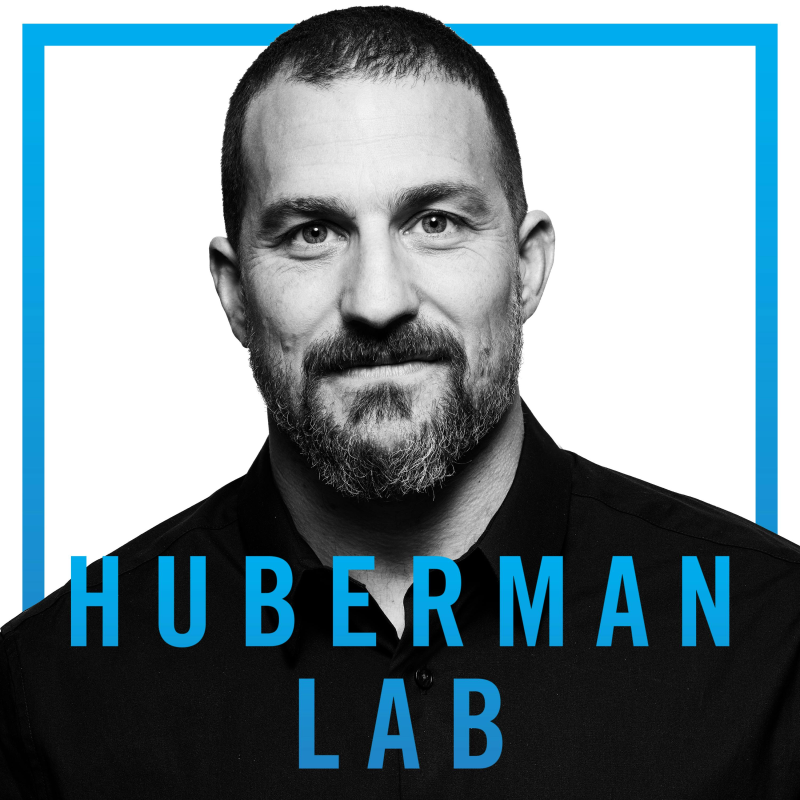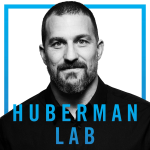
The Causes & Treatments for Autism | Dr. Karen Parker

O epizodě podcastu
In this episode, my guest is Dr. Karen Parker, Ph.D., professor of psychiatry and director of the Social Neurosciences Research Program at Stanford University School of Medicine. We discuss the biology of social connections and bonding in babies, children and adults. Dr. Parker explains our current understanding of autism and autism spectrum disorders: what they are, why the incidence of autism has increased so dramatically in recent years and both the current and emerging treatments for autism. We also discuss the condition formerly called “Asperger’s.” This episode ought to be highly relevant for anyone interested in child and human development, how social bonds form, and to those curious about autism and other spectrum conditions.
For show notes, including referenced articles and additional resources, please visit hubermanlab.com.
Thank you to our sponsors
AG1: https://drinkag1.com/huberman
Eight Sleep: https://eightsleep.com/huberman
LMNT: https://drinklmnt.com/huberman
AeroPress: https://aeropress.com/huberman
InsideTracker: https://insidetracker.com/huberman
Momentous: https://livemomentous.com/huberman
Timestamps
(00:00:00) Dr. Karen Parker
(00:01:30) Sponsors: Eight Sleep, LMNT & AeroPress
(00:06:25) Autism, Frequency, Diagnosis
(00:10:41) Early Interventions; Heritability & Autistic Traits
(00:13:00) Autistic Spectrums; Studying Autism
(00:21:29) Environment, Risk Factors & In Utero Development
(00:29:55) Sponsor: AG1
(00:31:26) Oxytocin, Vasopressin, Social Behavior & Parent-Child Bonding
(00:43:240 Oxytocin in Humans; Social Features of Autism, Intranasal Oxytocin
(00:54:14) Sponsor: InsideTracker
(00:55:16) Oxytocin & Autism; Benefit & Risks
(01:06:30) Neuroplasticity & Autism; Early Intervention; Challenges of Early Diagnosis
(01:14:30) MDMA & Autism
(01:17:05) Vasopressin, Social Interaction; Voles & Parenthood
(01:27:07) Human Social Connection, Oxytocin Levels & Autism
(01:33:45) Primate Model of Social Impairment
(01:42:47) Preclinical Animal Models, Mouse & Primates
(01:47:11) Primates, Biomarkers & Social Connection; Vasopressin
(01:52:20) Vasopressin Levels & Autism, Children & In Utero
(02:03:06) Cerebral Spinal Fluid (CSF) & Vasopressin; Urination; Alternative Therapies
(02:10:32) Intranasal Vasopressin, Children, Autism & Social Responsiveness
(02:19:15) Vasopressin & Social Connection, Mechanism & Future Studies
(02:26:35) Gut Microbiome & Vasopressin; Scientific Funding
(02:34:52) Vasopressin Pathways, Social Behavior, Autism
(02:43:00) Vaccine Theory & Autism; Immunology
(02:54:06) Zero-Cost Support, Spotify & Apple Reviews, Sponsors, YouTube Feedback, Momentous, Social Media, Neural Network Newsletter
Disclaimer
In this episode, my guest is Dr. Karen Parker, Ph.D., professor of psychiatry and director of the Social Neurosciences Research Program at Stanford University School of Medicine. We discuss the biology of social connections and bonding in babies, children and adults. Dr. Parker explains our current understanding of autism and autism spectrum disorders: what they are, why the incidence of autism has increased so dramatically in recent years and both the current and emerging treatments for autism. We also discuss the condition formerly called “Asperger’s.” This episode ought to be highly relevant for anyone interested in child and human development, how social bonds form, and to those curious about autism and other spectrum conditions.
For show notes, including referenced articles and additional resources, please visit hubermanlab.com.
Use Ask Huberman Lab, our new AI-powered platform, for a summary, clips, and insights from this episode.
Thank you to our sponsors
AG1: https://drinkag1.com/huberman
LMNT: https://drinklmnt.com/hubermanlab
Waking Up: https://wakingup.com/huberman
Momentous: https://livemomentous.com/huberman
Timestamps
(00:00:00) Dr. Karen Parker
(00:01:30) Sponsors: LMNT & Waking Up
(00:06:25) Autism, Frequency, Diagnosis
(00:10:41) Early Interventions; Heritability & Autistic Traits
(00:13:00) Autistic Spectrums; Studying Autism
(00:21:29) Environment, Risk Factors & In Utero Development
(00:28:01) Sponsor: AG1
(00:31:26) Oxytocin, Vasopressin, Social Behavior & Parent-Child Bonding
(00:43:240 Oxytocin in Humans; Social Features of Autism, Intranasal Oxytocin
(00:55:16) Oxytocin & Autism; Benefit & Risks
(01:06:30) Neuroplasticity & Autism; Early Intervention; Challenges of Early Diagnosis
(01:14:30) MDMA & Autism
(01:17:05) Vasopressin, Social Interaction; Voles & Parenthood
(01:27:07) Human Social Connection, Oxytocin Levels & Autism
(01:33:45) Primate Model of Social Impairment
(01:42:47) Preclinical Animal Models, Mouse & Primates
(01:47:11) Primates, Biomarkers & Social Connection; Vasopressin
(01:52:20) Vasopressin Levels & Autism, Children & In Utero
(02:03:06) Cerebral Spinal Fluid (CSF) & Vasopressin; Urination; Alternative Therapies
(02:10:32) Intranasal Vasopressin, Children, Autism & Social Responsiveness
(02:19:15) Vasopressin & Social Connection, Mechanism & Future Studies
(02:26:35) Gut Microbiome & Vasopressin; Scientific Funding
(02:34:52) Vasopressin Pathways, Social Behavior, Autism
(02:43:00) Vaccine Theory & Autism; Immunology
(02:54:06) Zero-Cost Support, Spotify & Apple Reviews, Sponsors, YouTube Feedback, Momentous, Social Media, Neural Network Newsletter
Disclaimer
Learn more about your ad choices. Visit megaphone.fm/adchoices
Popis podcastu
The Huberman Lab podcast is hosted by Andrew Huberman, Ph.D., a neuroscientist and tenured professor in the department of neurobiology, and by courtesy, psychiatry and behavioral sciences at Stanford School of Medicine. The podcast discusses neuroscience and science-based tools, including how our brain and its connections with the organs of our body control our perceptions, our behaviors, and our health, as well as existing and emerging tools for measuring and changing how our nervous system works.
Huberman has made numerous significant contributions to the fields of brain development, brain function, and neural plasticity, which is the ability of our nervous system to rewire and learn new behaviors, skills, and cognitive functioning. He is a McKnight Foundation and Pew Foundation Fellow and was awarded the Cogan Award, given to the scientist making the most significant discoveries in the study of vision, in 2017.
Work from the Huberman Laboratory at Stanford School of Medicine has been published in top journals, including Nature, Science, and Cell, and has been featured in TIME, BBC, Scientific American, Discover, and other top media outlets.
In 2021, Dr. Huberman launched the Huberman Lab podcast. The podcast is frequently ranked in the top 10 of all podcasts globally and is often ranked #1 in the categories of Science, Education, and Health & Fitness.